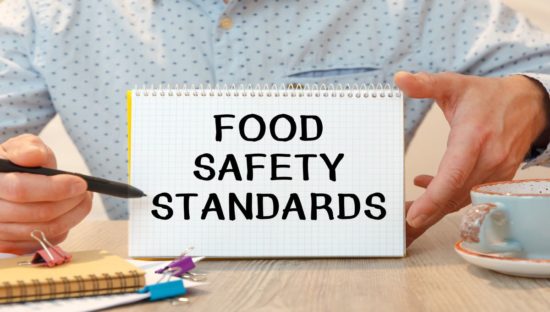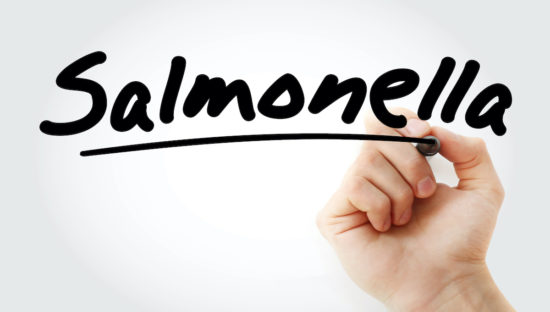Although some food companies have said they will voluntarily remove certain artificial dyes from their products, at least a third of companies have not said they will make such changes, according to the Center of Science in the Public Interest.
The dye discussion came to the forefront this spring when Health and Human Services Secretary Robert F. Kennedy Jr. and Food and Drug Administrator Martin Makary put out a plea for the voluntary action. The pair has not said whether they will pursue regulations if all food companies do not comply with their request.
The Center for Science in the Public Interest (CSPI) says it wants to see new regulations put in place because so many companies are ignoring the request for voluntary action. But, the CPSI says such action cannot take place until “Congress resolves the healthcare funding crisis that has led to a government shutdown freezing regulatory activity.”
The CSPI has a new tracking resource that covers commitments to remove synthetic dyes and titanium dioxide. It found only 11 of the top 24 manufacturers have pledged to phase out dyes from all products, with others committing to only some products (1), offering unclear commitments (4), or providing no plan at all (8).
“In spite of headlines touting voluntary commitments by the food industry to remove synthetic dyes, parents can expect to see plenty of these dyes in their children’s trick or treat bags this year,” said CSPI president Dr. Peter G. Lurie. “We call on the FDA to apply its scientific judgment to regulate these chemicals as unsafe, which it can do by restricting their use in food or requiring a warning label similar to warnings already adopted in Europe.”
Since 2008, CSPI has been urging the FDA to protect consumers from synthetic food dyes because of the dyes’ demonstrated impact on children’s behavior. Studies show that certain children who consumed dyes exhibited hyperactivity or other behavioral problems. A review of the science on food dyes by California’s environmental health regulators found that dyes “can cause or exacerbate neurobehavioral problems in some children.”
The Biden administration used its regulatory authority to ban the carcinogenic food dye Red 3 in January, shortly before the Trump administration assumed office. So far, Kennedy and Makary have mostly relied on public pressure and state-level restrictions on dyes to spur voluntary commitments on the part of food companies.
Some of America’s biggest food companies have reacted to Kennedy’s pressure unevenly. The Campell’s Company, Conagra, General Mills, Grupo Bimbo, Hershey, Kellanova, WK Kellogg Co, Kraft Heinz, Nestle, J.M Smucker Co., and Tyson have all announced plans to get rid of dyes in all their products. General Mills committed to removing dyes from cereals in 2015 but reverted to their use in 2017.
However, Coca-Cola, Fererro, Flower Foods, Keurig Dr Pepper, Mars, McKee Foods, Post Holdings, and Unilever have made no such commitments. Some companies, like PepsiCo, apply their commitments only to a fraction of the company’s products. In PepsiCo’s case, the commitment only extends to foods sold in schools and the Lay’s and Tostitos product lines. Many other companies’ policies are unclear or vague.
“Unsurprisingly, the companies that use dyes the most are less likely to share Kennedy’s ‘understanding’ that they should eliminate food dyes,” according to CSPI. “Of the top five users of dyes in 2020, only Hershey has announced plans to eliminate dyes from all its products.”
The CSPI uses Ferrero as an example. The maker of SweeTarts, Nerds, Brach’s, and many popular candy bars, used food dyes in 60 percent of its products in 2020, and has announced no plans to eliminate them. The same is true for Mars, which famously backed out of a 2016 commitment to phase out dyes from all products, including M&Ms, and which dyed 52 percent of its products as of 2020. Mars did remove the white pigment titanium dioxide from its Skittles candies — a welcome move, according to CSPI — though that color additive is not on Kennedy’s phase-out list.
“As anyone who has studied food industry voluntary commitments would know, companies sometimes make good on their commitments, sometimes they reverse their commitments, and sometimes their pledges are so narrowly tailored or vague as to be no commitment at all,” said Lurie. “We know Red 3 is not coming back because the Biden administration used regulation to get rid of it. Kennedy’s voluntary strategy opens the door for industry to offer empty promises and backtrack on its commitments when people stop paying attention.”
In addition to calling of federal regulation of food dyes, the CSPI also supports ongoing state efforts to pass legislation regulating synthetic food dyes. West Virginia has banned all synthetic dyes statewide, a move the synthetic color industry is fighting in court. Texas and Louisiana have each passed warning label requirements for dyed foods. Six states, including California, have banned dyes from school foods, and New York is considering doing the same. Two states, Delaware and Tennessee, have passed laws banning only Red 40 in school foods.
“In addition to federal action, we strongly encourage state legislatures and governors in both red and blue states to explore taking action to protect consumers from unsafe food ingredients,” Lurie said. “Food chemical safety is too important to cede to voluntary pledges from individual food companies.”
(To sign up for a free subscription to Food Safety News, click here)



